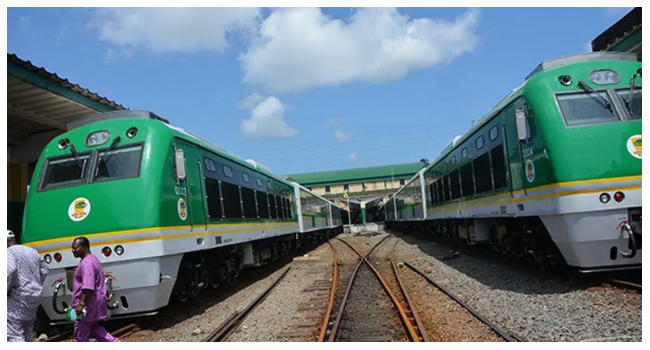The Nigerian Railway Corporation (NRC) announced plans to facilitate the transportation of herders and traders moving their cattle from northern Nigeria to the southern region using rail services.
NRC Managing Director, Fidet Okhiria, revealed this during an interview on Channels Television’s The Morning Brief breakfast show on Wednesday, shortly after President Bola Tinubu unveiled the establishment of a new ministry for livestock development.
According to Okhiria, the resumption of cattle and goods transport will commence initially on the Warri-Itakpe route. The NRC, primarily known for passenger traffic, had halted cattle transport by train in 2017 due to technical challenges.
However, Okhiria assured that within one or two months, herders would be able to transport their cattle using the Warri-Itakpe train services. Itakpe is situated in Kogi State in North Central Nigeria, while Warri is located in Delta State in the South-South geopolitical zone.
He emphasized that the NRC aims to modernize freight transportation across the country, enabling goods transported by road from the north to be efficiently moved by rail to Warri in the South-South.
Okhiria also mentioned that the NRC has imported wagons capable of transporting livestock, currently being assembled in the Kajola area of Oyo State in the South-West.
“We’ve built 15 wagons for livestock and maybe in the next month or two months, they would be deployed from Itakpe to Warri to drive the economy,” the NRC boss stated.
‘Efficient Rail Services Boost Economy’
He said investment in railways should be for the social and economic benefits of the people and not profit-oriented in naira and kobo.
“You are not developing transportation because you want to make profit in terms of naira and kobo but the profit will come indirectly if we can move goods and link cities,” he said.
According to him, the indirect earnings might not be directly to the government but it would flow into the economy.
Okhiria said investment in rail infrastructure should be for the public good and to make lives comfortable for the masses to have a robust and vibrant economy.


